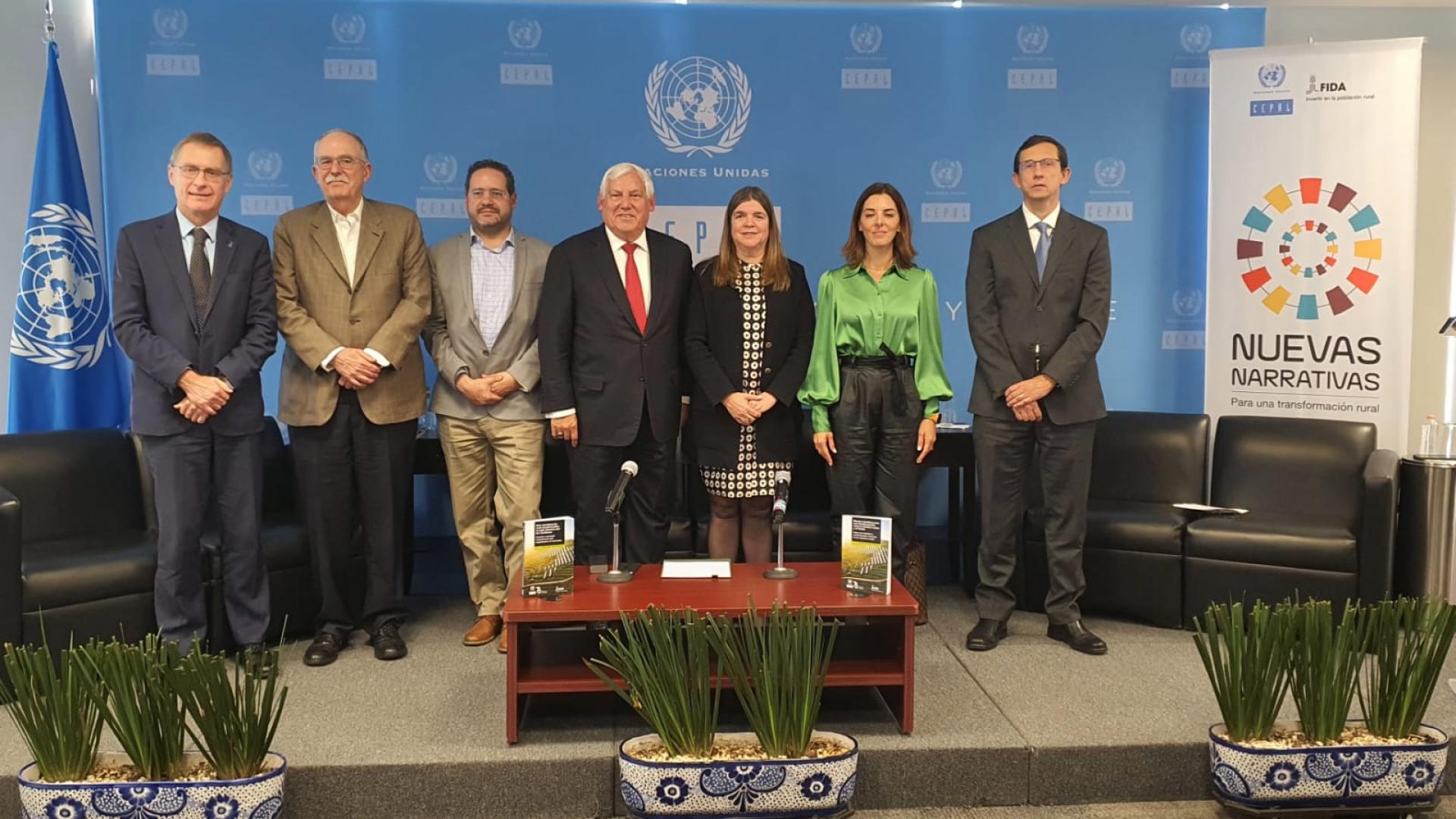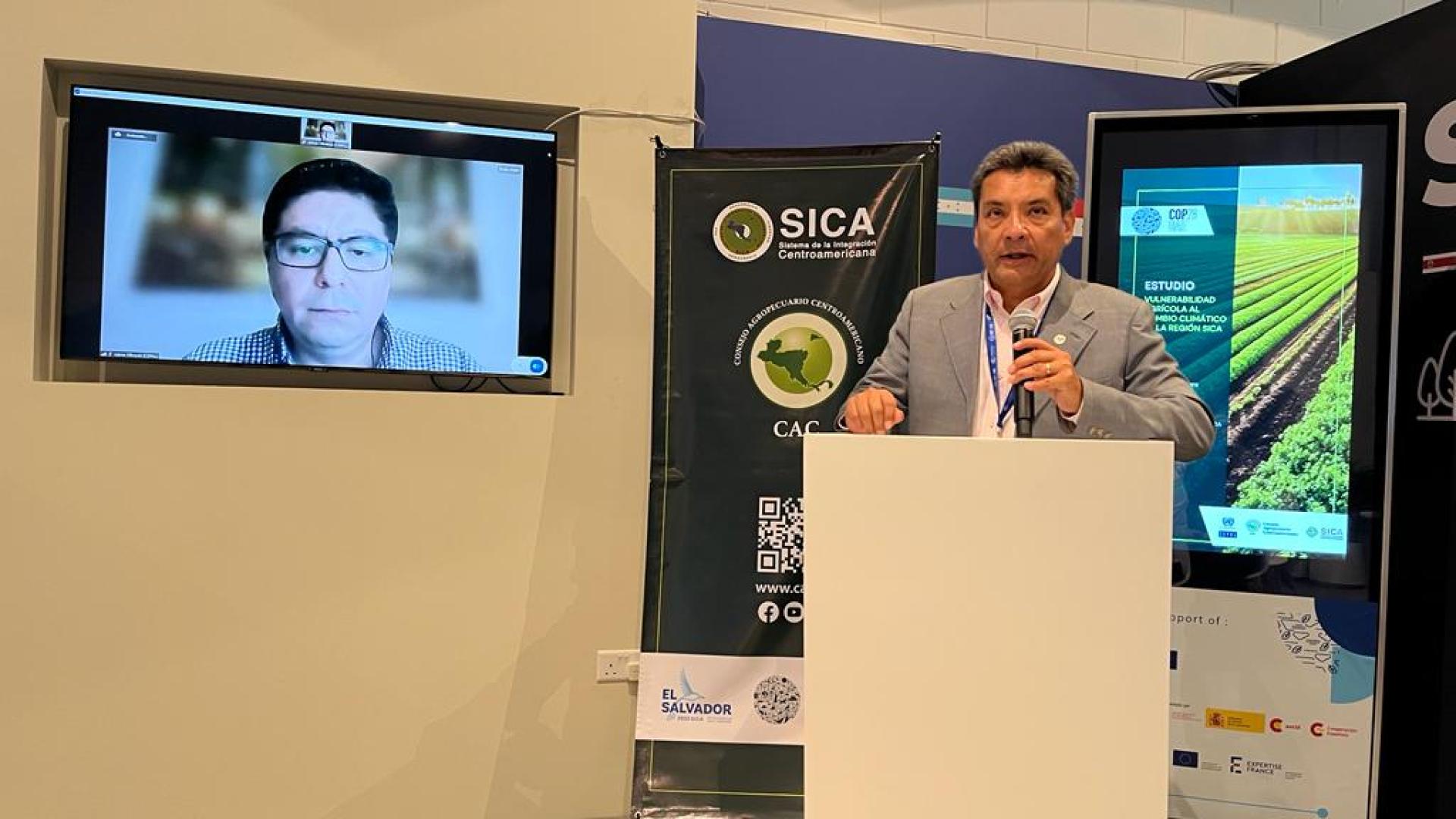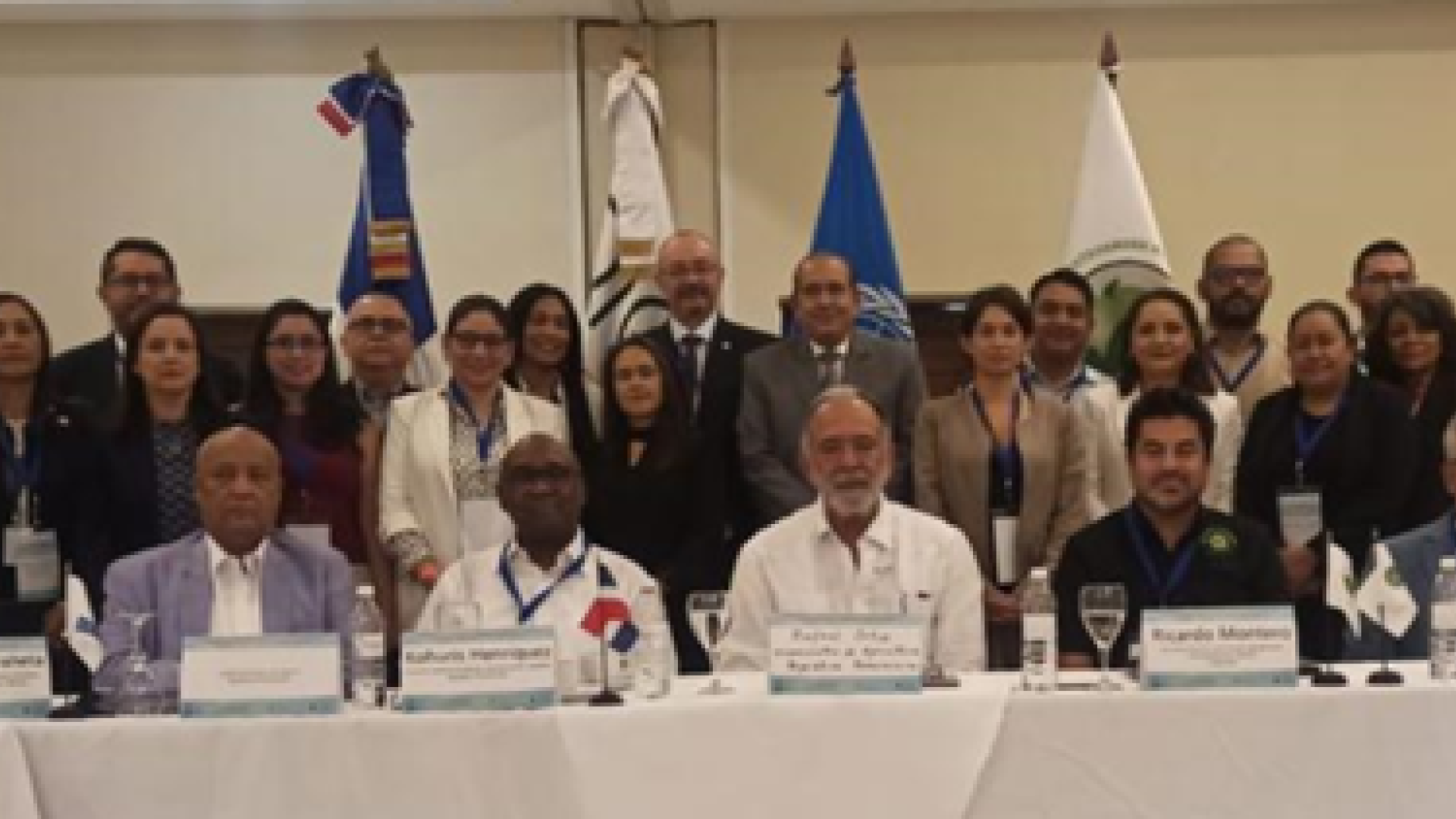Briefing note
(20 August 2014) According to experts speaking today at the opening of the 5th Regional seminar on agriculture and climate change organized by ECLAC and FAO, supported by French Cooperation and sponsored by IICA and Oxfam (United Kingdom), it is vital to acknowledge the traditional knowledge accumulated by family farmers and native peoples, as well as to learn from that knowledge in order to adapt to climate change.
The event, whose theme is "agrobiodiversity, family farming and climate change", is being attended by officials from the region's ministries of agriculture and planning, agricultural innovation agencies and international experts.
In her opening address, the Executive Secretary of the Economic Commission for Latin America and the Caribbean (ECLAC), Alicia Bárcena, stated that the region has been the source of various crop species such as maize and potato. She highlighted "the major role played by native peoples and family farmers in selecting and handling these varieties from generation to generation". She said "this accumulated knowledge has not been sufficiently acknowledged".
According to the senior official, climate change is already generating dramatic alterations to the water cycle, soil and coastal areas of Latin America and the Caribbean (particularly Central America), hence the need for urgent action.
"We need to develop more diversified and resilient agricultural systems and develop production options for variable climatic conditions", Ms. Bárcena said. She described the seminar as "an opportunity to think about the role of family farming, not just in producing food but also in protecting agrobiodiversity".
Raúl Benítez, Regional Representative for Latin America and the Caribbean of the Food and Agriculture Organization of the United Nations (FAO), declared that 16 of the region's 33 countries have already achieved the first Millennium Development Goal (MDG) to reduce by half the number of people suffering from hunger between 1990 and 2015.
He said "We will achieve this goal as a region", while also identifying many challenges that remain pending (such as increasing food production, reducing waste and losses and protecting the environment). In this regard, he affirmed that family farming accounts for 80% of farmers in Latin America and the Caribbean, and generates 50% of rural employment.
He declared "If we can support governments and farmer organizations by promoting public policies able to tackle climate change and providing resources to family farmers, we will have taken a major step towards ensuring that no man, woman, boy or girl has to go hungry in our region. We can be the last generation of Latin American and Caribbean people to live with hunger".
Pascal Delisle, Regional Advisor for French Cooperation, pointed out that "In this International Year of Family Farming, we feel it very important to analyse not only its contribution to the agricultural sector, but also its known ability for adaptation and resilience to climate change".
The event, which ends on Thursday 21 August, included a presentation by Graciela Magrín, Argentine expert from the Intergovernmental Panel on Climate Change (IPCC).
See also:



